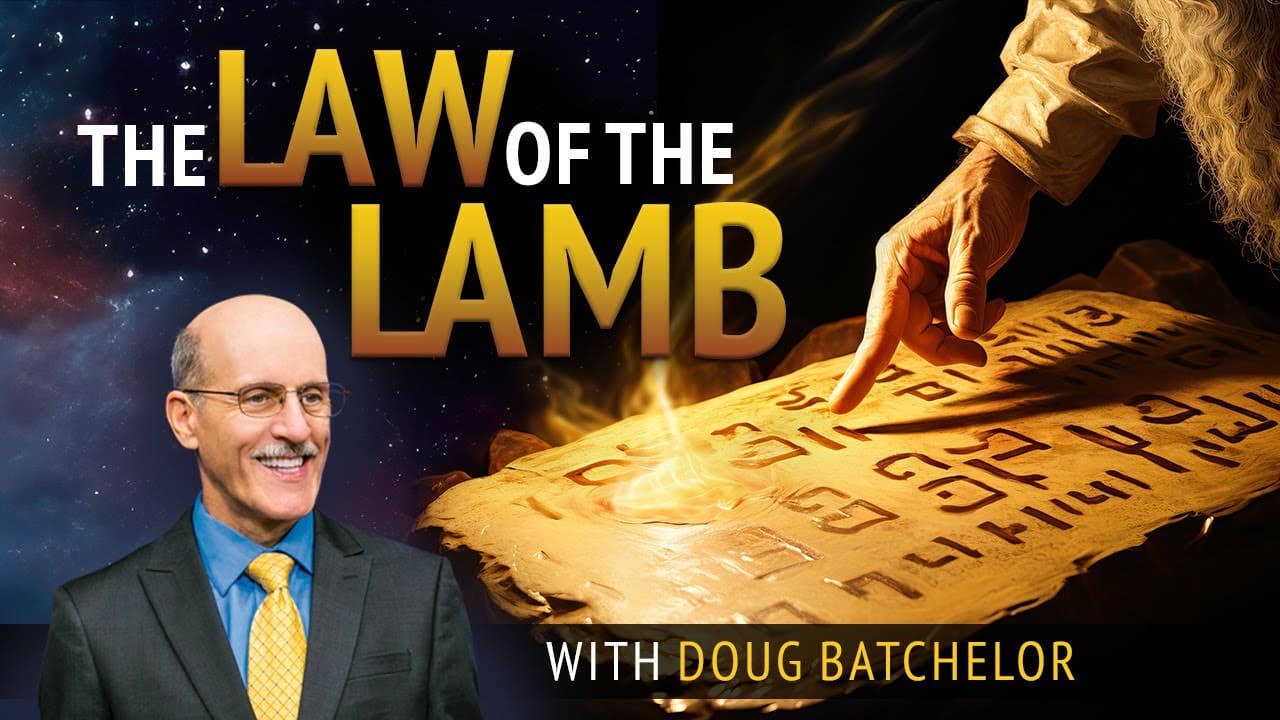Although Christians may have differing beliefs on various matters, one thing they generally agree on is the importance of having a day of rest in the Christian life. But which day should we observe as the day of rest? Do we decide? What does the Bible say?
In Genesis 2:2-3, it is mentioned that God rested on the seventh day after completing His work of creation. This day was blessed and made holy by God, establishing the concept of Sabbath, which means “rest.” Exodus 20:10 further confirms that the seventh day is dedicated to the Lord as a Sabbath.
Interestingly, many cultures and languages reflect in their customs a day of rest on the seventh day of the week. The term for the seventh day in various languages, even unrelated to ancient Hebrew, translates to “rest day.” Over 100 languages worldwide still refer to Saturday as the “Sabbath” and recognize it as a day of rest.
It’s important also to note that the concept of Sabbath predates Judaism. Throughout thousands of years, the Jewish people have consistently observed the seventh day Sabbath, regardless of calendar changes. Even with adjustments made to the calendar by Pope Gregory XIII, the sequential order of the days of the week remained intact.
In Exodus 16, we read about the weekly miracles associated with the Sabbath over a period of forty years. God reaffirmed the observance of the Sabbath at Sinai (Exodus 20:8-11), and the Jewish people continued to observe the seventh day Sabbath during the time of Jesus. Jesus Himself observed the Sabbath (Luke 4:16; 23:54, 56; 24:1) until His death, which is described in Luke as happening on the day before the Sabbath.
Luke’s account also mentions that the women who followed Jesus rested on the Sabbath in obedience to the commandment. The next day, on the first day of the week (Sunday), they discovered that Jesus had risen from the dead. Christians commemorate this event through the celebration of Easter. The day between Jesus’ death and resurrection, on which the women rested, had to be Saturday.
Scripture clearly portrays God designating the seventh day of the week as the Sabbath, and throughout biblical history, His followers celebrated it as such. If it hasn’t been changed, the seventh day remains the Sabbath. So why do many people today observe Sunday instead of Saturday? This is a question that invites further exploration and understanding.
| LANGUAGE (Where Spoken, Read, or Otherwise Used) | 1 | 2 | 3 | 4 | 5 | 6 | Name of the SEVENTH DAY |
| Shemitic Hebrew Bible world-wide | Day One | Day Second | Day Third | Day Fourth | Day Fifth | Day the Sixth | Yom hash-shab-bath Day the Sabbath |
| Hebrew (Ancient and Modern) | One into the Sabbath | Second into the Sabbath | Third into the Sabbath | Fourth into the Sabbath | Fifth into the Sabbath | Eve of Holy Sabbath | Shab-bathSabbath |
| Targum of Onkelos (Hebrew Literature) | Day One | Day Second | Day Third | Day Fourth | Day Fifth | Day the Sixth | Yom hash-shab-bath Day the Sabbath |
| Targum Dialect of the Jews in Kurdistan | Day One of the Seven | Day 2nd of the Seven | Day 3rd of the Seven | Day 4th of the Seven | Day 5th of the Seven | Day of Eve (of Sabbath) | yoy-met sha-bat kodesh Holy Sabbath Day |
| Ancient Syriac *Each day proceeds on, and belongs to the Sabbath | One into Sabbath | Two into Sabbath | Three into Sabbath | Four into Sabbath | Five into Sabbath | Eve (of Sabbath) | Shab-ba-tho Sabbath |
| Chaldee Syriac Kurdistan and Urdmia, Persia | One into Sabbath | Two into Sabbath | Three into Sabbath | Four into Sabbath | Five into Sabbath | Eve (of Sabbath) | Shap-ta Sabbath |
| Samaritan (Old Hebrew Letters) Nablus, Palestine | Day One | Day Second | Day Third | Day Fourth | Day Fifth | Day Sixth | Shab-bath Sabbath |
| Babylonian Euphrates Tigris Valleys Mesopotamia (Written lang. 3800 B.C.) | First | Second | Third | Fourth | Fifth | Sixth | Sa-ba-tu Sabbath |
| Assyrian Euphrates and Tigris Valleys, Mesopotamia | First | Second | Third | Fourth | Fifth | Sixth | sa-ba-tu Sabbath |
| Arabic (Very old names) | Business Day | Light Moon | War Chief | Turning Day or Midweek | Familiar or Society Day | Eve (of Sabbath) | Shi-yar Chief or Rejoicing Day |
| Arabic (Ancient and Modern) Westn. Asia, E,W & N. Africa | The One | The Two | The Three | The Four | The Fifth | Assembly (day, Muham) | as-sabt The Sabbath |
| Maltese, Malta | One (day) | Two (and day) | The 3 (3rd d.) | The 4 (4th d.) | Fifth (day) | Assembly | Is-sibt. The Sabbath |
| Ge-ez or Ethiopic Abyssinia (Ge-ez signifies “original”) | One (day) | Second | Third | Fourth | Fifth | Eve (of Sabbath) | san-bat Sabbath |
| Tigre Abyssinia (Closely related to Ge-ez) | One (First day) | Second | Third | Fourth | Fifth | Eve (of Sabbath) | san-bat Sabbath |
| Amharic, Abyssinia (Nearly related to Ge-ez) | One | Second | Third | Fourth | Fifth | Eve (of Sabbath) | san-bat Sabbath |
| Falasha (Language of the Jews of Abyssinia) | One | Second | Third | Fourth | Fifth | Sixth | yini sanbat The Sabbath |
| Coptic Egypt (A dead lang. for 200 years) | The First Day | The 2nd Day | The 3rd Day | The 4th Day | The 5th Day | The 6th Day | pi sabbaton The Sabbath |
| Orma or Galla South of Abyssinia (This language has two sets of names, the first being the oldest) | Lady, Virgin Mary Day. Great or Festival Sabbath | Second day. First Trade Day | 3rd Day to the Sabbath. Second Trade Day | 4th day to the Sabbath. Fourth (day) | Fifth (day) | Assembly (day) | Last day of the half-week inclusive of 4th day Little or Humble or Solemn Sabbath (A day of no ceremonial display and no work) |
| Tamashek or Towarek (From ancient Lybian or Numidian). Atlas Mountains, Africa. | First day | Second day | Third day | Fourth day | Fifth day | Assembly Day | a-hal es-sabt. The Sabbath Day |
| Kabyle or Berber. (Ancient Numidian) North Africa | Day the One (First) | Day the Two (2nd) | Day the Three (3rd) | Day the Four (4th) | Day the Fifth | The Assembly Day | ghas or wars assebt The Sabbath Day |
| Hausa (Central Africa) | The One (1st) | The Two (2nd) | The Three (3rd) | The Four (4th) | The Fifth | The Assembly | assebatu The Sabbath |
| Urdu or Hindustani (Muhammadan and Hindu, India) (Two names for the days) | One to Sabbath. Sunday | 2nd to Sabbath. Moon-day | 3rd to Sabbath. Mars | 4th to Sabbath. Mercury | 5th to Sabbath. (Eve of Juma) | Assembly (day) | sanichar – Saturn shamba – Sabbath |
| Pashto or Afghan Afghanistan | One to the Sabbath | Two to Sabbath | Three to Sabbath | Four to Sabbath | Five to Sabbath | Assembly (day) | khali – Unemployed-day, Shamba – Sabbath |
The chart highlights the widespread presence of the Sabbath concept and the recognition of the seventh day as a day of rest in various ancient and modern languages. Even in languages predating the Hebrew race, such as Babylonian, the seventh day was referred to as “sabaton,” meaning “rest day.” This demonstrates that the biblical Sabbath is not limited to Judaism alone.
It is fascinating to observe that the word “Sabbath” and the practice of resting on the seventh day (Saturday) are found in numerous languages throughout history. This suggests that God’s seventh-day Sabbath predates Judaism. Cultures spanning from Babylon to the present day have acknowledged and observed a holy day of rest on Saturday.
When examining languages globally, two important observations emerge. Firstly, the majority of major languages designate the last day of the week as the “Sabbath.” Secondly, no language designates any other day as the “day of rest.” These findings suggest that not only those who referred to the last day of the week as the “Sabbath,” but also all other people and races who recognized a day of rest, observed it on the seventh day. It is worth noting that historian, So omen recorded that during his time, the entire known world, except for Rome and Alexandria, observed the seventh day of the week.
Socrates, in his “Ecclesiastical History,” Book 7, chapter 19, wrote: “The people of Constantinople, and almost everywhere, assemble together on the Sabbath, as well as on the first day of the week, which custom is never observed at Rome or at Alexandria.”
An intriguing observation is that the original words used in different languages to refer to the seventh day of the week as the “Sabbath” have remained remarkably similar over time. Meanwhile, other words have undergone significant changes, becoming unintelligible across different language groups. This further supports the notion that the concept of Sabbath and the specific terms used to signify the seventh day of the week as the “Sabbath day” originated from Creation, aligning with the biblical account found in Genesis 2:1-3.














